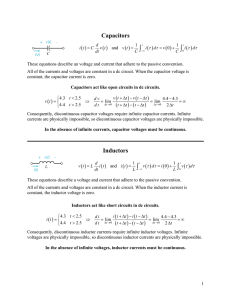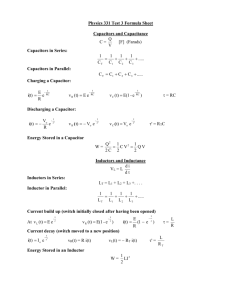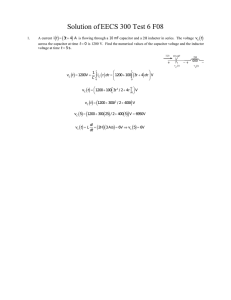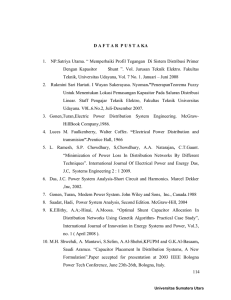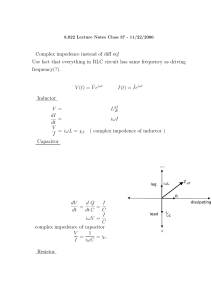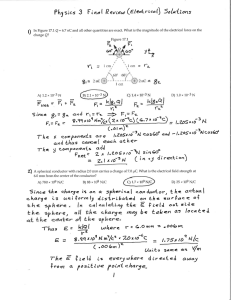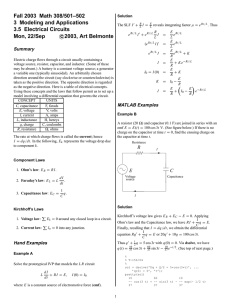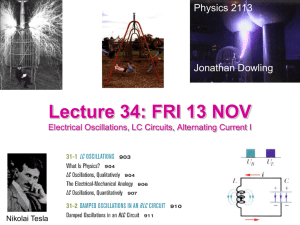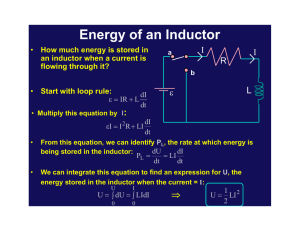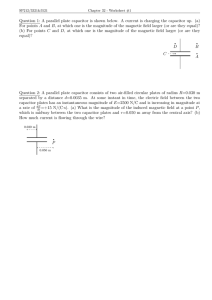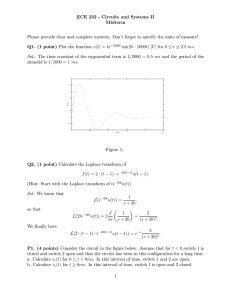Slide 1
advertisement
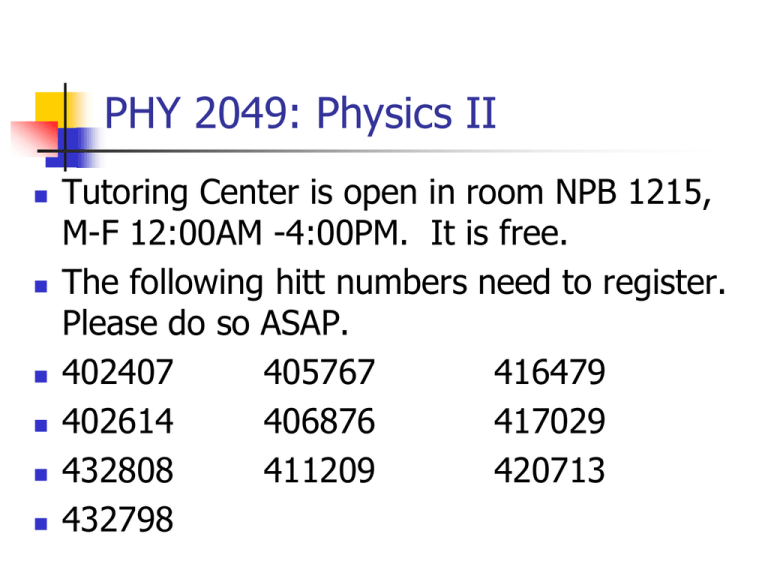
PHY 2049: Physics II Tutoring Center is open in room NPB 1215, M-F 12:00AM -4:00PM. It is free. The following hitt numbers need to register. Please do so ASAP. 402407 405767 416479 402614 406876 417029 432808 411209 420713 432798 Ch. 31 Electromagnetic Oscillations RC, RL, LC circuits Driven damped Oscillations Resonance Series RLC circuits Power Transformer Last time LC circuit Analogous to a pendulum L m q x C 1/k Be careful with ωt in radians (not degrees) 2 L d q dt 2 q 0 C q q o sin o t U 1 2 Li 2 1 q o 2 2 C qo 2 2C 1 LC Alternating Currents A resistance V o sin t IR 0 I V R sin t I R sin( t ) 0 The current and voltage are in phase Capacitor: AC response q CV o sin t i (t ) dq dt V0 CV o cos t I C sin( t 90 ) sin( t 90 ) XC XC 1 C The current leads the voltage Inductor: AC response vL L di dt i (t ) V o sin t Vo L cos t Vo sin( t 90 ) XL X L L The current lags the voltage HITT A capacitor in an LC oscillator has a maximum potential difference of 15V and a maximum energy of 360 μJ. At a certain instant the energy in the capacitor is 40 μJ. At that instant what is the potential difference across the capacitor? A. zero E. 20V B. 5V C. 10V D. 15V A different problem An LC circuit has a capacitance of 30 μF and an inductance of 15mH. At time t = 0 the charge on the capacitor is 10 μC and the current is 20mA. The maximum charge on the capacitor is: A. 8.9 μC B. 10 μC C. 12 μC D. 17 μC E. 24 μC Yet different A 45-mH inductor is connected to a source of sinusoidal emf with a frequency of 400 Hz and a maximum emf of 20V. The maximum current is: A. 0 B. 0.18A C. 1.1A D. 360A E. 2300A ans: B RLC circuit 2 L d q dt 2 q Qe '2 R dq dt - Rt/2L V o cos t C cos( t ) ( 2 q ' R 2L ) 2 RLC circuit e v L vC v R e I R X L X C 2 2 IZ tan XL XC R Inductive Capacitive In resonance e = E sin ωt i = io sin (ωt –φ) Capacitor current leads Power = I2R = ermsirmscosφ (cos φ =R/Z) Resonance Transformers
